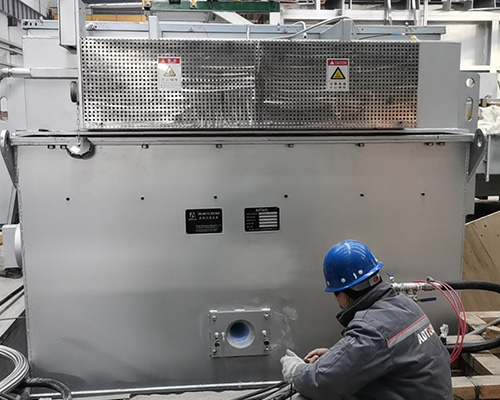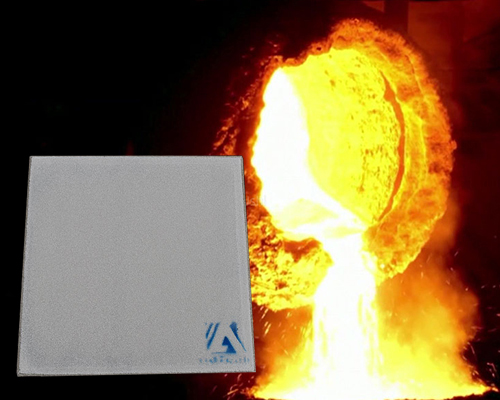Even with the best filtering technology, the input of very dirty metal can be overwhelming. Therefore, the importance of properly adjusting the metal before filtering cannot be overemphasized. The cleaner the metal entering the filter, the finer the filter that can be used, resulting in “cleaner” metal leaving the filter. We offer ceramic foam filters for molten metal filtering with a whole range of porosities from PPI 10 up to PPI 60 (PPI = pores per inch). Custom-made cut-to-size filters are also possible.
Scrap rate, output, alloy recovery rate, and raw materials are all areas of a foundry, and are usually widely concerned as a means of increasing profits or reducing costs. Molten metal cleanliness is one of the main challenges faced by most foundries. They must produce slabs with a sufficiently low content of hydrogen, alkali metals (mainly sodium) and inclusions to make the finished product suitable for its end-use. This is particularly important when rolling slabs into thin plates to make beverage cans or foils.
The savings in filter materials will only be magnified as energy costs and pressure to reduce carbon footprints increase.

Regardless of the type of filter used, care must be taken to ensure that the filter is not affected by excessive vibration or changes in the metal level. These “interferences” will cause the release of inclusions in the final product. Good process control downstream of the final filtration device is particularly important. In addition, foundry operators should take care to minimize turbulence in certain areas.
For inclusions, some foundries use deep bed filters. This usually involves filtering molten aluminum through beds of ceramic media of different sizes. Although these are usually very effective (usually over 85%), they can be expensive to run. This is due to the required floor space and the limited service life of the filter media. They usually need to be replaced and disposed of on a regular basis.
The final filtration step is usually a ceramic foam filter (CFF). This is a disposable filter, made of tough porous ceramic foam with strictly controlled pore size. Because of its simple operation, low cost, and good short-term operation effect, these are usually the only filtration equipment in many foundries.

